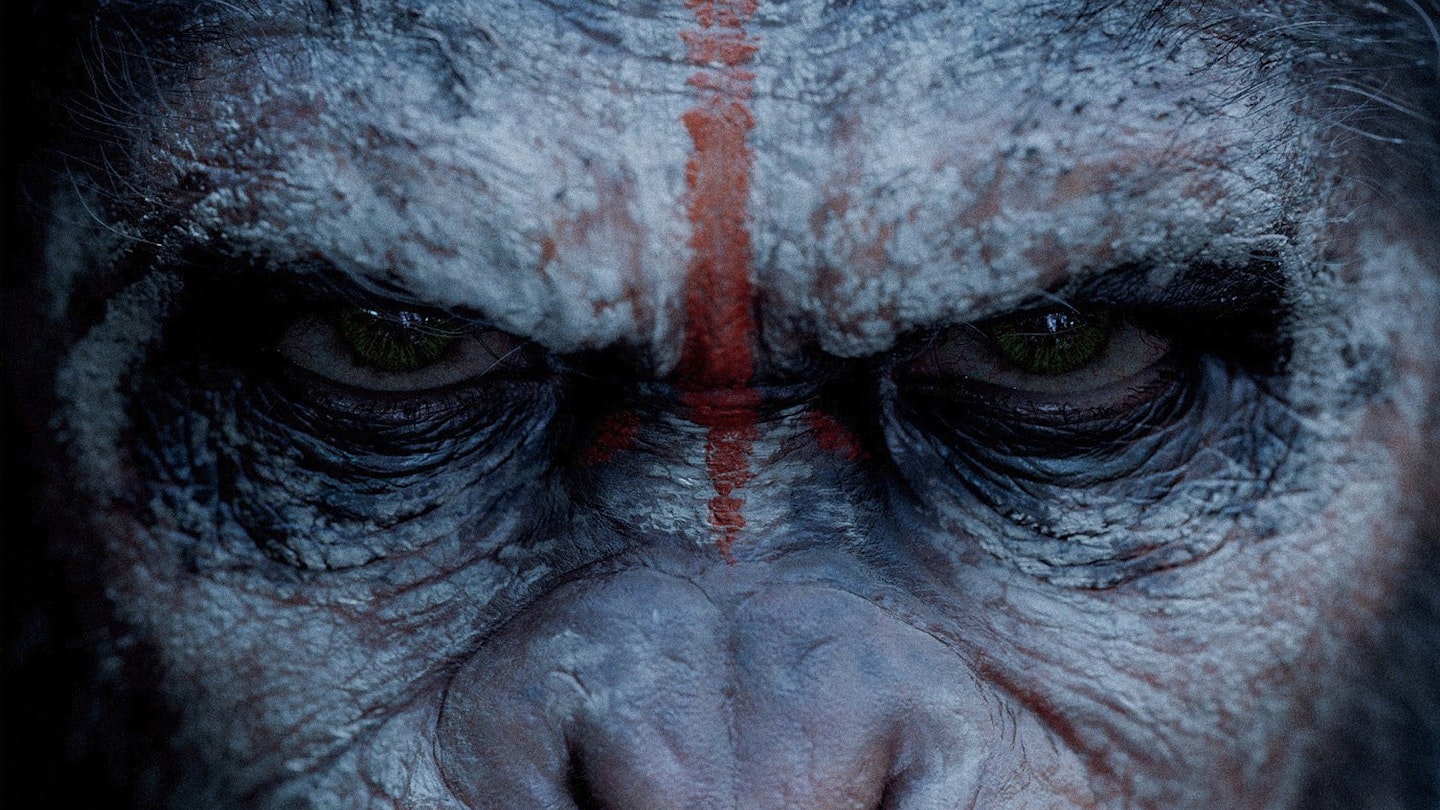Matt Reeves's Dawn Of The Planet Of The Apes is already a big success, with huge US box office and enormous critical buzz. When we sat down with him last week in London to get into some more spoilerific territory, we got a few insights into his approach to the film and the themes behind the action. Here, we have extracted the most notable revelations from the interview, but to listen to Reeves in full check out the Empire Podcast spoiler special here.
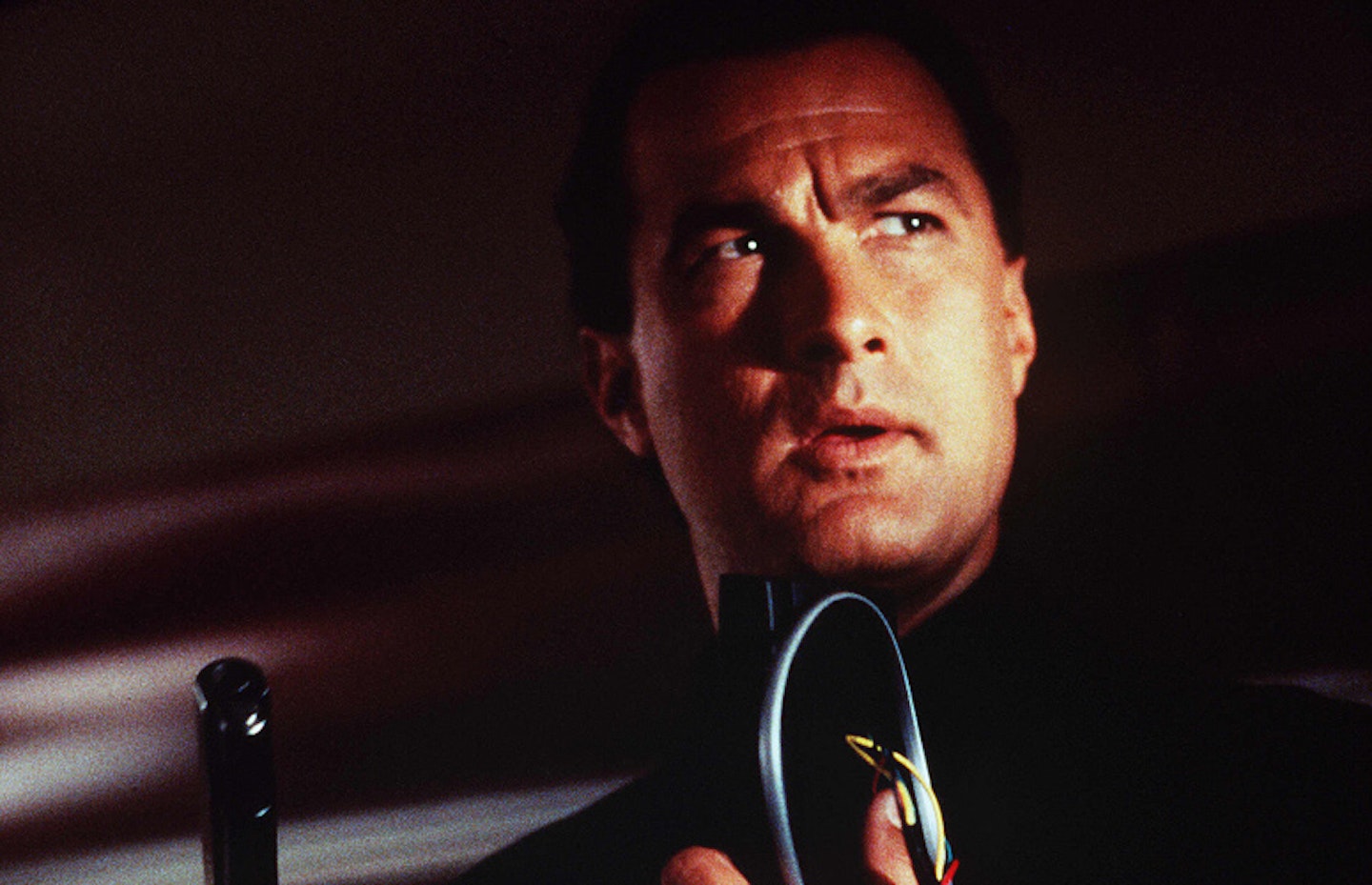
Oh gee! That’s a movie that I wrote with a friend of mine, when we in college. There was a big action spec market, a lot of movies that were selling, and so we wrote this movie with my thought being, ‘And then I will be able to finance my student film and that way I can become a director’. We wrote it, and the spec market crashed and it didn’t sell. But these guys optioned it and, right as I was graduating school, Warner Brothers bought it. Then I did my first job out of film school, and we were writing this movie and one day they rung us up and said ‘Great news! We’re gonna make your movie.’ I said ‘You’re kidding, that’s amazing!’ They were like ‘Yeah, we’re gonna make it into Under Siege 2'.
Our script was called Dark Territory, which I think actually is part of the title now because it’s actually a train term. There’s a part where you’re not being surveyed, where you go into darkness. No one knows where the trains are. It was also called End Of The Line at one point, because it was a train movie. But it was meant to be very much like a Die Hard movie, which I guess Under Siege really was too, except the difference was that in the Under Siege movies that tension is how soon before Segal will rip out someone’s larynx. And what I love about Die Hard was this idea of the underdog, that here’s this guy, especially in that first movie, who’s a cop from New York who doesn’t even have shoes. And somehow he has got to save this building, save the day. That was what that movie was suppose to be, but it didn’t end up being that.
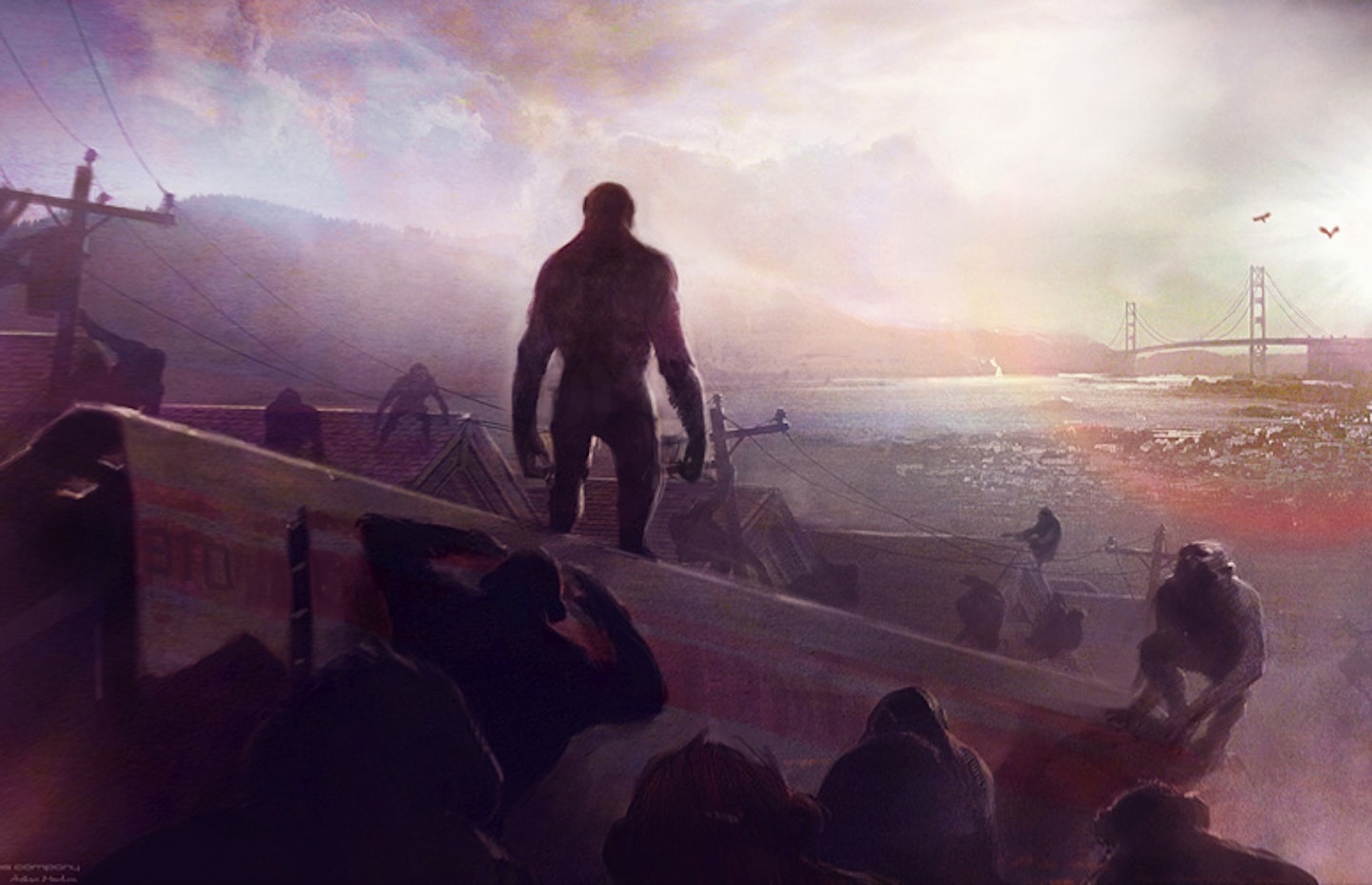
The title already was Dawn when I came in. It just so happened that also worked perfectly with the idea of the movie I had, which when I came in there was a different version than they were planning to make. It started with the apes coming down into a post-apocalyptic San Francisco, and they start pushing up power lines and they were very articulate. They could speak much more easily than they spoke in Rise but also in our movie. And it was not from Caesar’s point of view. I was little thrown. I said, ‘The thing about Rise was that it was an ape point of view movie, Caesar’s movie. That’s the secret of the movie. And if I were gonna do the movie, I would do something different.' I thought they were gonna kick me out of the office then. But they were like, ‘So what would you do?’
I said, ‘What would be exciting is a Caesar point of view movie, and to do the beginning of the movie not in a post-apocalyptic world.' I thought that idea felt kind of familiar. I knew it would be part of the story, because it’s part of the Planet Of The Apes, but instead I thought we’d start in the creation of ape civilization. My thought was it could be like the beginning of 2001 and be like the dawn of man sequence, except it would be the dawn of intelligent apes. So for me the title worked perfectly.
I pitched that to them and I said, ‘Once you spend 15 minutes in their world, almost like a silent movie, and you get into their civilization and see their development and where they’re at, you realize that this civilization is essentially a big family that Caesar is the father of. He is like Don Corleone of the apes or something! Then we would introduce the humans and it could really be like a classic Western, like A History Of Violence.' I pitched this and to my shock they said, 'That sounds great.'
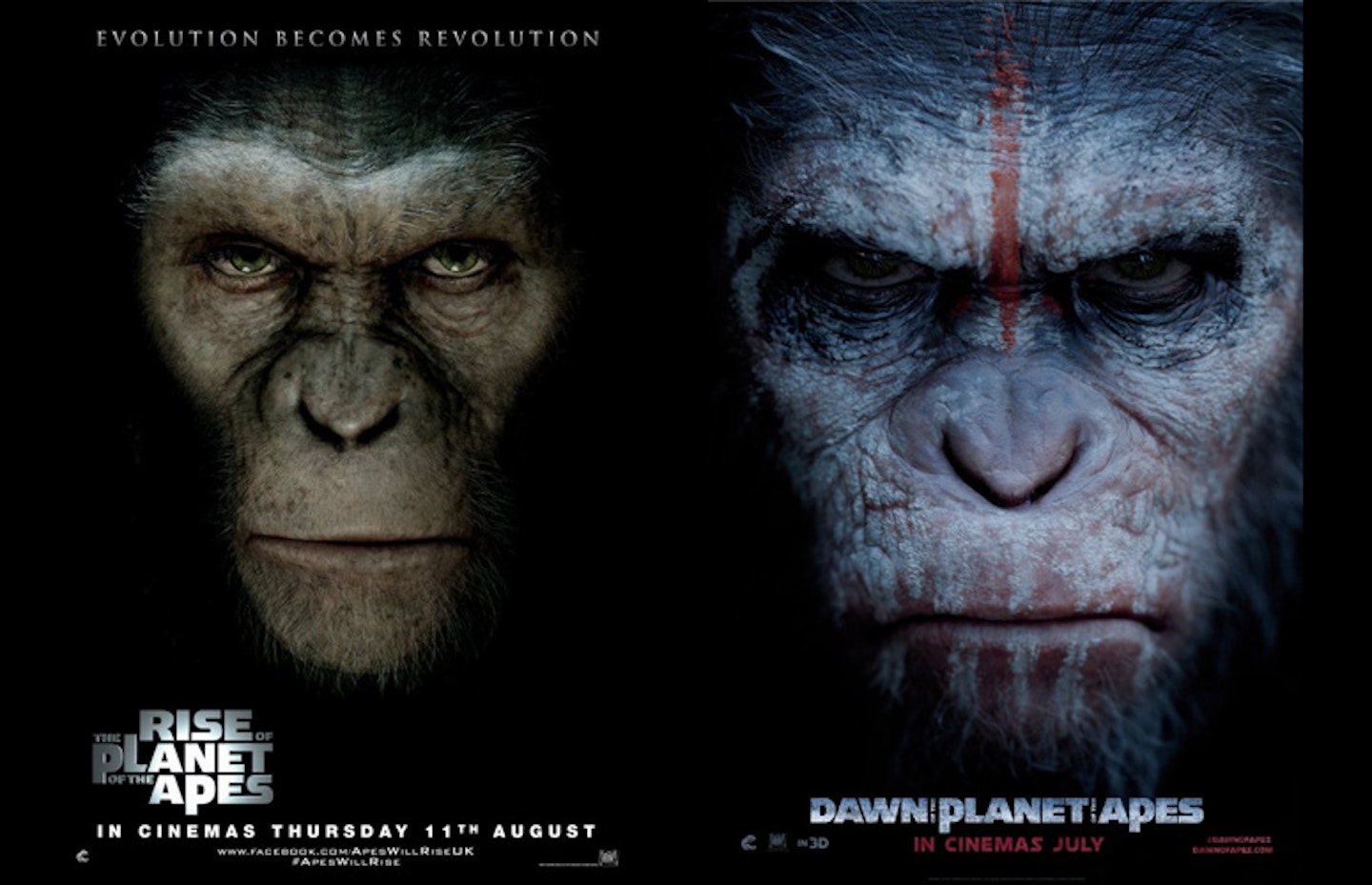
I just liked the title; for me it really worked. It’s funny because in different territories, the film is called different things. In some places Dawn and Rise is the same word. I don’t remember exactly what language that is, so I guess these titles are a bit of a problem. There are people who say ‘Isn’t Dawn before Rise?’ and I’m like ‘You know, I can’t answer that question’. We don’t have a title yet [for the planned sequel]. Not Breakfast though. Brunch.
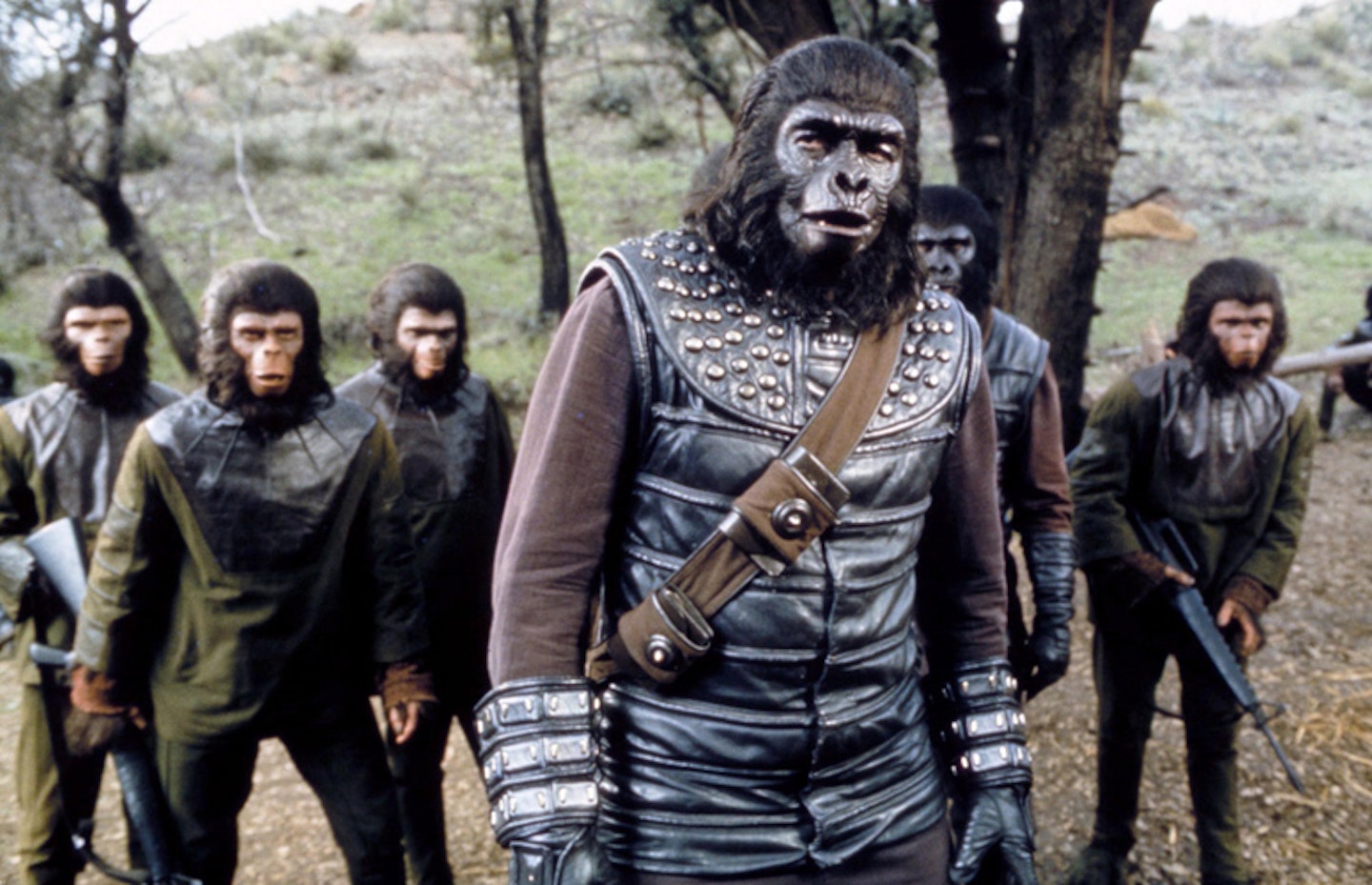
It was not the intention [to parallel Battle For The Planet Of The Apes]. As a kid I was obsessed with the franchise. I loved Planet of the Apes. The American TV series, I felt, was on for most of my childhood. It was actually on for three months, amounting to 14 episodes. I love that show. I love the movies. I had a little tape reel of Beneath The Planet Of The Apes that I watched endlessly.
But I jumped in so late and I pitched this version of the story, so Mark Bomback, the writer, didn’t have time to go back. Mark and I are going to write the next movie and we’re gonna go back and watch all the old films, but we didn’t have time to do that. So this movie, it may pick up* elements *of Battle. I am actually really anxious to go back and watch them. Actually some of those old films, I don’t remember. I only saw it once as a kid. The ones that I saw the most were Planet Of The Apes and Beneath. Beneath terrified me. I thought that was so scary. So I am really anxious to go back and look at Battle.
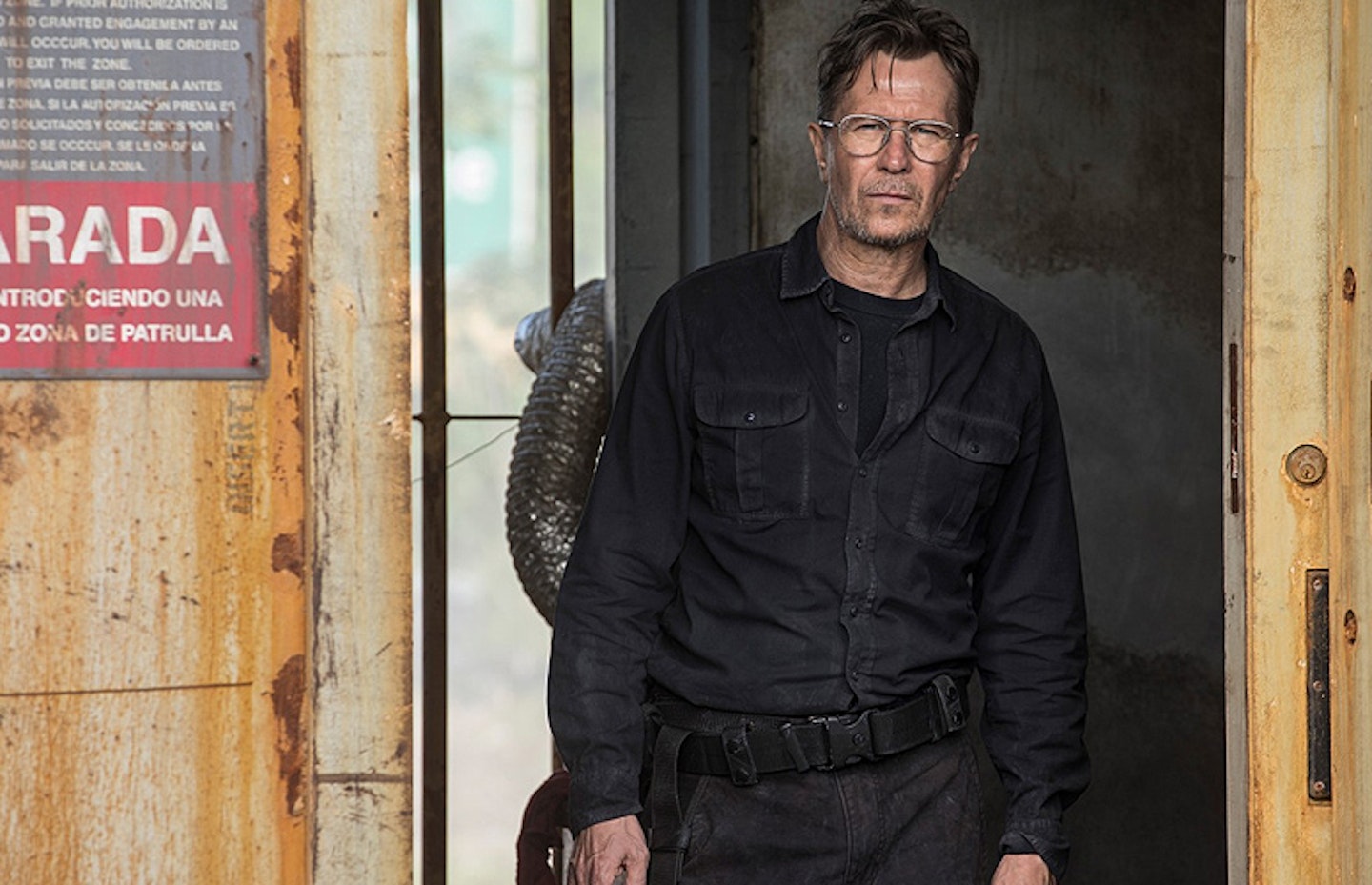
There is a building exactly where that building is, which is very much like that building except for the skyscraper coming out of it. The idea was that that would be like a historically preserved building, which is on that corner right there at the bottom of California Street, and that there would be a half-built a project coming out of it because the world came to an end. Civilization would be stopped in time.
I thought that would be a place where, after living in anarchy for so long, they could all sort of band together and create a fortress. Not because of the apes; just because they didn’t know what was out there in the world and [they had] the idea of trying to create this little Calcutta-like little village at the base of this skyscraper in a fortified space, so that they could protect themselves from whatever was outside. All of the geography is pretty interesting, because we shot the movie partially in San Francisco but mostly in New Orleans and Vancouver, which is where we shot the woods stuff. But people who are from San Francisco tell us it looks very much like we could have shot it in San Francisco.
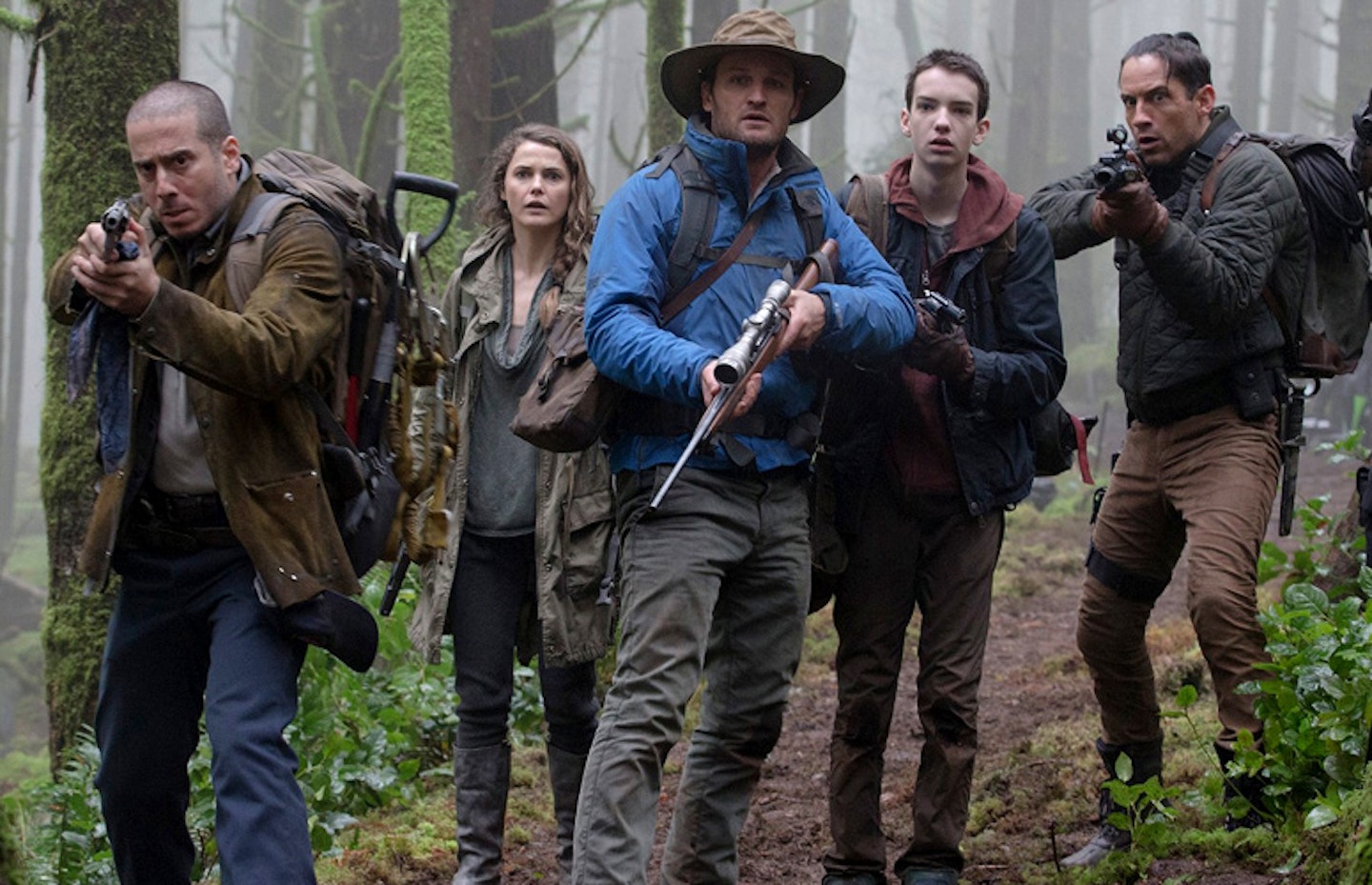
We thought they were fishermen. That was part of the reason that they were down where they were. They are very close to the water. The weird thing about it is that you do all of this stuff and you hope it will show. I know for a fact that this is one thing that definitely doesn’t show. All those sets we were filming at, especially in New Orleans, it was summer. It was so hot and humid and dank, and we had rotting fish all over that set, as it was part of the production design. James Chinlund, our production designer, is brilliant, and so much of what he did is extraordinary. But the fish I didn’t end up filming enough to justify the smell that we smelled all that time, but the idea was the fishing community and that they were close to the water. They were there for security reasons and that they could fish and then bring back the fish. We had hanging, stinking fish everywhere. For something that is so fantastical we tried to be as realistic as possible.
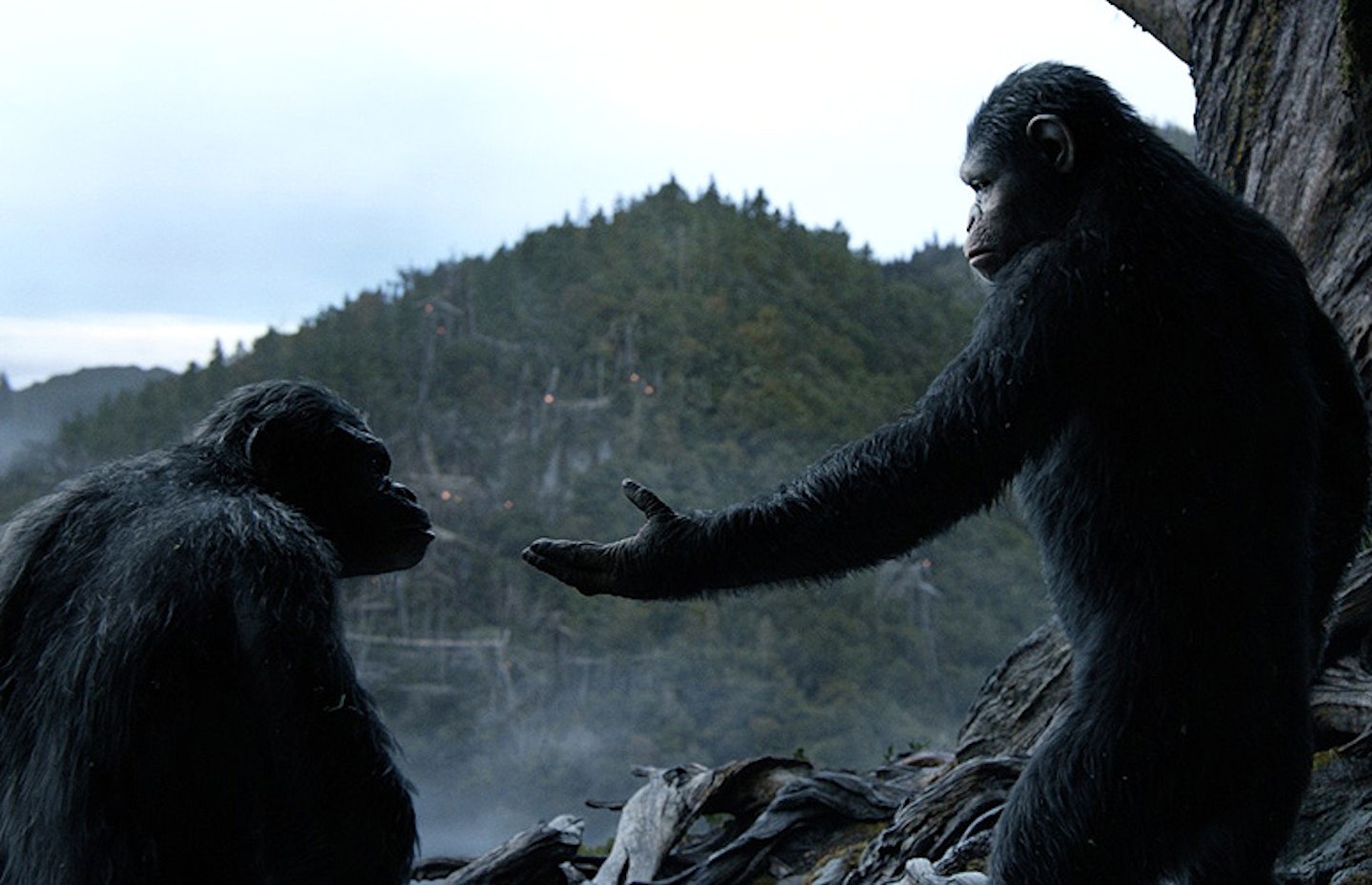
Well apparently the guy who played Koba last time was essentially a stunt performer and he did a great job. But when that character became primary to the story, we wanted to get a really great actor. We saw RocknRolla and we were like, ‘OK, this guy is really powerful. We are going to cast someone with that volcanic energy and that’s going to be interesting.'
What’s great with Toby’s performance for me is that he is so terrifying, but he starts in a place where he’s very wounded and you have a lot of sympathy for him. I think, for the story to work, we wanted it to be a Shakespearean story between two brothers. We wanted it to be a thing where they have forged a brotherhood through Caesar freeing them from bondage, and if the humans hadn’t shown up, that the faultlines might never been exposed and they might have been able to continue exactly that way.
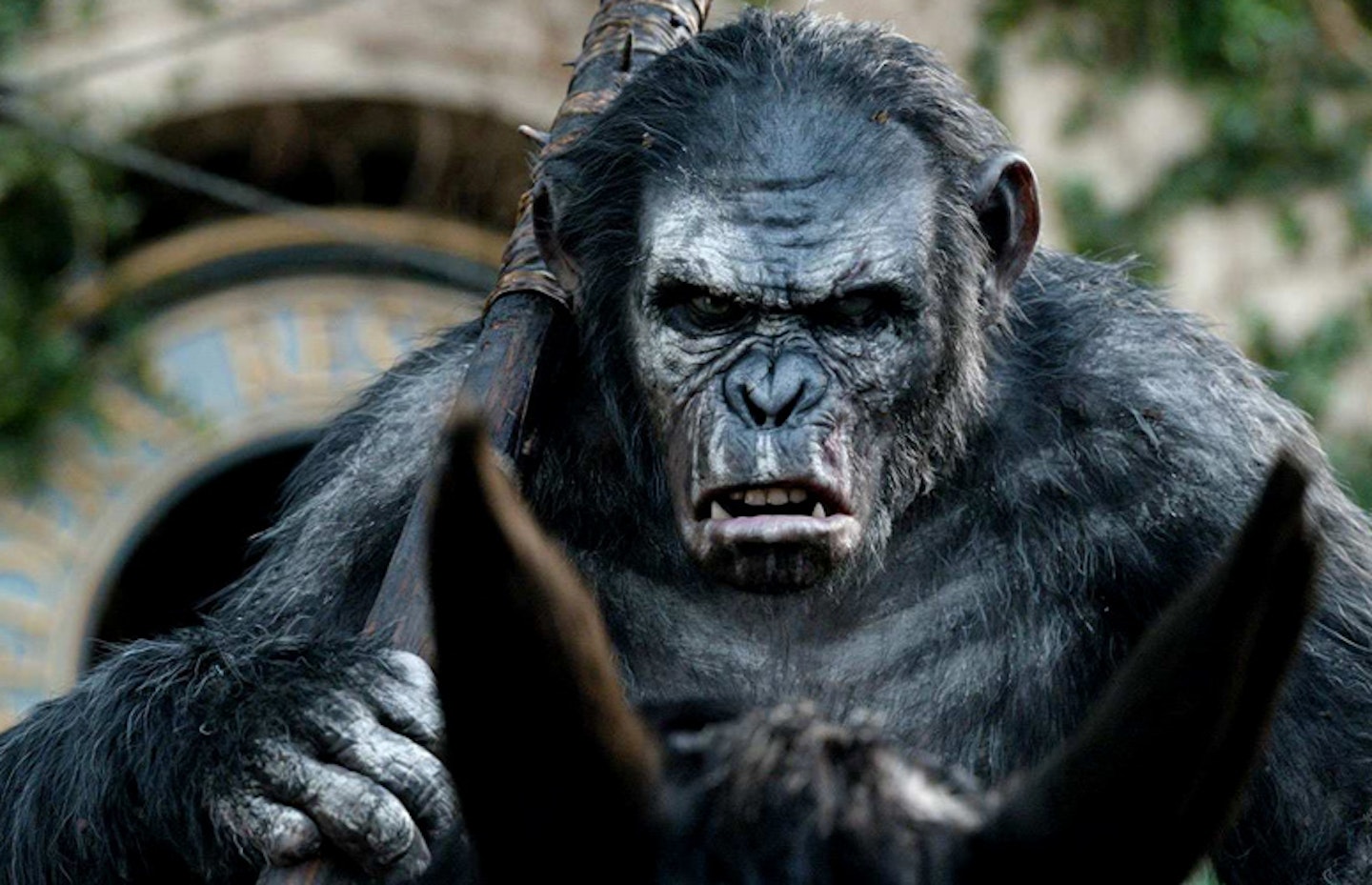
There is actually a scene we cut out - after the hunt, after Caesar’s son is born - where they are doing all these tributes to Caesar. It’s a pretty cool scene, we'll probably put it on the DVD. It was a last-minute cut, as it was keeping the story from where it needed to go. In that scene, they are making these tributes, and they bring the bear skin, from the bear that Koba saved Caesar and his son from earlier in the day. Caesar stops and waves it over to Koba and signs to him, and says, ‘You saved my life today’. Essentially, ‘I never would have seen my newborn, if you hadn’t done this.' Then Koba gets very emotional and they put their arms around each other, and then Caesar, with their arms around each other, looks up at the crowd and speaks for the first time and says ‘Apes together strong.’ It was a cool scene but it made the other scenes after it not play as well, because it took to long to get to them, so we took it out.
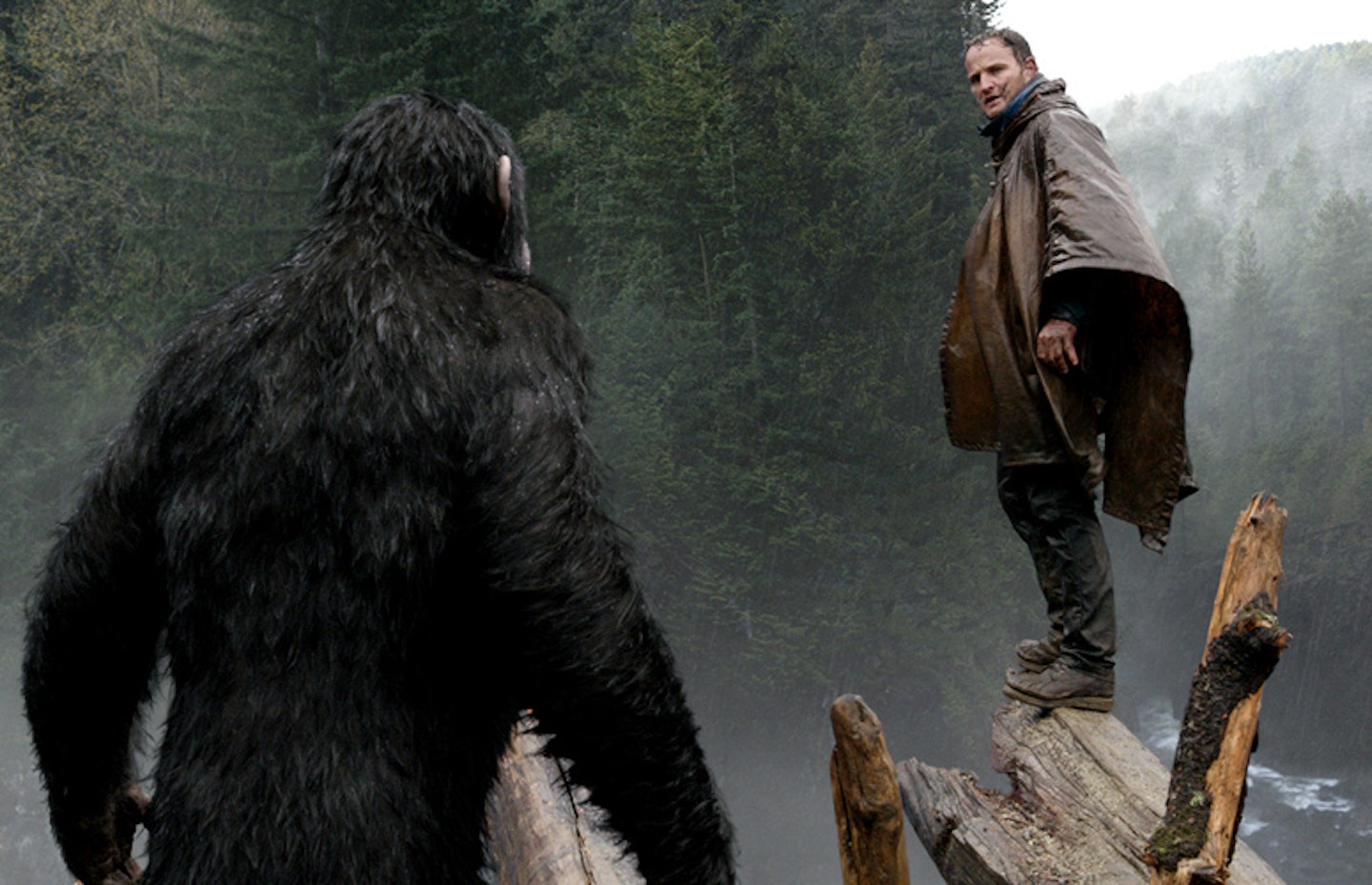
The idea was that there should be no easy villains. In the last film the story was very static and by the Golden Gate scene there was no ambiguity. You wanted the apes to win. They had been so unjustly treated, they had been in prison and they had been treated horribly. In this, given what the story was and what it represented, the story was the one moment in time where it could have gone a different way. I mean, it could have been Planet Of The Humans And The Apes, and we know that because of the '60s movie, it doesn’t go that way. I thought that the only way to do that in a story that had any kind of resonance was to allow there to be no villains, to allow each character to have a point of view that you could understand. Toby’s character Koba has really gone through an ape apocalypse. He has essentially been tortured and so of course he is not going to have the empathy for humans that Caesar does, because they had no empathy for him.
To get Gary Oldman’s character, the idea being that if some bird flu had spread in such a way that it killed 99.9% of the world we wouldn’t really have a very good feeling about birds. So he had been through an experiment that had robbed him of his family.
One of the key things in the story was, the breaking point for both of those characters was that they didn’t have families. Caesar and Malcolm had families still, even if they were broken. Malcolm had lost his wife, but he still had his son and he had a new wife and this family unit that was worth preserving. Caesar also had this family that was worth preserving, so the idea was that those were characters that were trying to navigate through the violence. It was much easier for those who had lost everything, or in the case of Koba, somebody who had never quite had that experience.
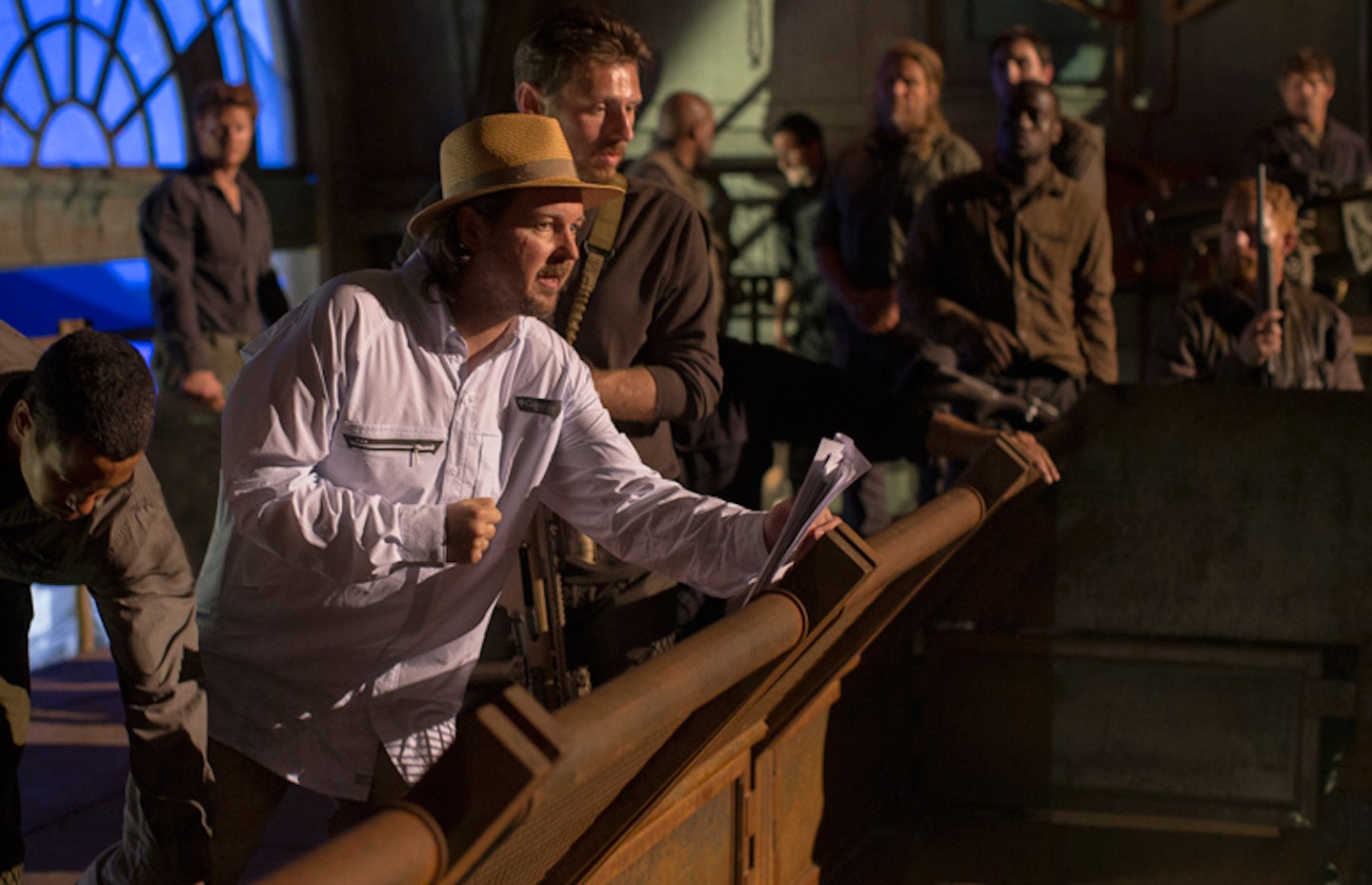
The original ending had the army arriving and I felt that it went too far. So very late, in the last month, we cut that scene because I felt that it boxed us in too much to the exact moment. That war is coming… This is what this movie is about, that moment that passes where it could have been something different. But where exactly we begin for the next one is not set in stone. I thought that by having that ending as we originally had it *did *put it to much in stone.
So actually in some of the trailers there is a shot of this ship, and that ship is not exactly the shot we had. We had a shot where the ship was meant to be far on the horizon and the ending was the same, on Caesar, when we move in on his eyes and he is staring out and he is actually looking at the future. But the future was very immediate. Right there on the horizon was war and I think that it just felt like ‘Oh war is beginning right now’, instead of ‘When does that war begin? How does that war begin? How will Caesar respond?’ I wanted to go back a step earlier, and so we changed the ending at the very last moment.
